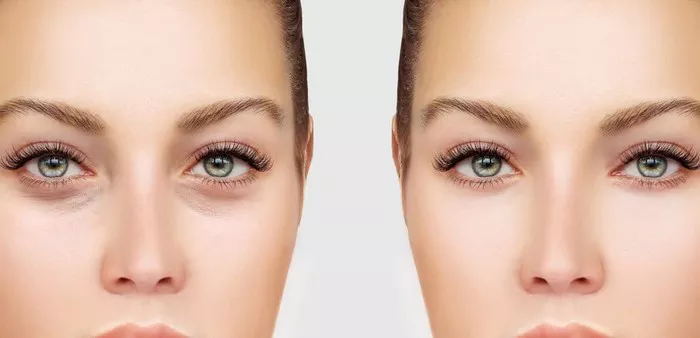Eyelid surgery, also known as blepharoplasty, is a common cosmetic procedure designed to improve the appearance of the eyelids. While the surgery can yield excellent results, it’s not uncommon to experience itchiness around the eyes during the recovery period. Itchy eyes can be bothersome but are typically a normal part of the healing process. In this article, we will explore why itchy eyes occur after eyelid surgery and what you can do to alleviate discomfort and promote a smooth recovery.
Understanding Itchy Eyes After Eyelid Surgery
Itchiness around the eyes following eyelid surgery can be attributed to several factors:
Swelling and Healing: After surgery, the body initiates the healing process, which involves inflammation and swelling. As the tissues around the eyes heal, itchiness can be a natural response.
Surgical Dressings and Stitches: The use of surgical dressings, sutures, and adhesive tapes can irritate the delicate skin around the eyes, leading to itchiness.
Dryness: Post-surgery, the eyes may experience dryness due to reduced blinking and increased sensitivity. Dry eyes can contribute to itchiness and discomfort.
What to Do for Itchy Eyes After Eyelid Surgery
Follow Post-Operative Instructions:
Your surgeon will provide you with specific post-operative instructions. It’s crucial to adhere to these guidelines diligently. Follow any prescribed medications, eye drops, or ointments as directed.
Keep Your Eyes Clean:
Proper eye hygiene is essential during the recovery period. Use a clean, sterile, and recommended solution to gently clean the eyelid area. Avoid rubbing or scrubbing the eyes, as this can exacerbate itching.
Apply Cold Compresses:
Cold compresses can help reduce swelling and relieve itchiness. Use a clean, soft cloth or ice pack wrapped in a thin cloth. Apply it gently to the eyes for 10-15 minutes at a time, with breaks in between.
Use Prescribed Eye Drops:
If your surgeon has prescribed eye drops or artificial tears, use them as directed to combat dryness and maintain eye comfort.
Avoid Allergens:
During the healing process, your eyes may be more sensitive to allergens. Try to stay in a clean and dust-free environment. If you have allergies, speak to your surgeon about allergy management during recovery.
Limit Screen Time:
Excessive screen time, whether on a computer or smartphone, can contribute to eye strain and dryness. Take regular breaks and blink frequently to keep your eyes moist.
Stay Hydrated:
Proper hydration supports overall healing and helps maintain eye moisture. Drink an adequate amount of water throughout the day.
Protect Your Eyes from the Sun:
Sun exposure can worsen post-operative discomfort. Wear sunglasses with UV protection when outdoors to shield your eyes from harmful rays.
Avoid Makeup and Contacts:
It’s essential to avoid wearing makeup and contact lenses until your surgeon gives you the green light. Both can introduce irritants to the healing area.
Consult Your Surgeon:
If itching persists or worsens, or if you experience any unusual symptoms, contact your surgeon immediately. They can provide guidance and determine if there are any underlying issues.
When to Seek Medical Attention
While mild itchiness is common during the healing process after eyelid surgery, there are situations where you should seek prompt medical attention:
Severe Itching: If the itchiness becomes severe and unrelenting, it could be a sign of an allergic reaction or infection.
Pain, Redness, or Discharge: Any of these symptoms may indicate an infection or other complications that require immediate medical evaluation.
Changes in Vision: If you notice sudden changes in vision or significant discomfort in the eyes, contact your surgeon immediately.
Conclusion
Itchy eyes after eyelid surgery are a common and expected part of the healing process. By following your surgeon’s instructions and practicing good eye hygiene, you can manage itchiness and ensure a smoother recovery. Remember that patience is key during this period, and any concerns or unusual symptoms should be promptly discussed with your surgeon to ensure the best possible outcome.


